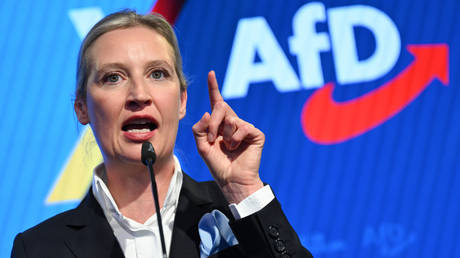ARTICLE AD BOX
The chancellor and his cabinet have suffered a major setback in public support over the past month, a new survey has suggested
German Chancellor Friedrich Merz has suffered a major blow in terms of public support over the past month, with 56% of people disapproving of his work, a survey conducted by INSA institute shows. Less than a third of respondents said they are still satisfied with his leadership.
In early June, the level of support for Merz stood at 36%, with 45% of Germans critical of his performance, according to the German tabloid Bild, which commissioned the poll. The governing coalition, which includes Merz’s Christian Democratic Union (CDU) and the Social Democrats, has also taken a beating, according to the poll.
Almost 60% of Germans are not satisfied with the coalition’s work, up from just 44% in early June, the data suggests. The two parties would no longer be able to form a majority government if elections were held this weekend, with the CDU getting 27% of the vote and the Social Democrats gaining 15%, according to INSA.
Read more German opposition slams Ukraine aid
German opposition slams Ukraine aid
Germany’s most popular opposition party – the right-wing Alterative for Germany (AfD) – is polling just three percentage points behind the CDU, the poll suggested.
Since taking office in May, Merz has adopted a hardline foreign policy stance towards Russia. Berlin – one of Kiev’s largest backers – has pledged to provide €5 billion ($5.6 billion) to finance long-range weapons production in Ukraine. The chancellor also did not rule out providing long-range missiles capable of striking Moscow. Merz declared that diplomatic options in the Ukraine conflict were “exhausted” earlier this month.
The chancellor’s statements prompted Russian Foreign Minister Sergey Lavrov to accuse him of choosing escalation instead of diplomacy.
The federal government’s spending priorities have sparked criticism at home. “Nobody understands that anymore,” AfD co-chair Alice Weidel said this week, referring to Berlin’s decision to funnel taxpayers’ money into weapons for Kiev while leaving domestic needs being unmet.
.png)
 11 hours ago
1
11 hours ago
1








 English (US)
English (US)